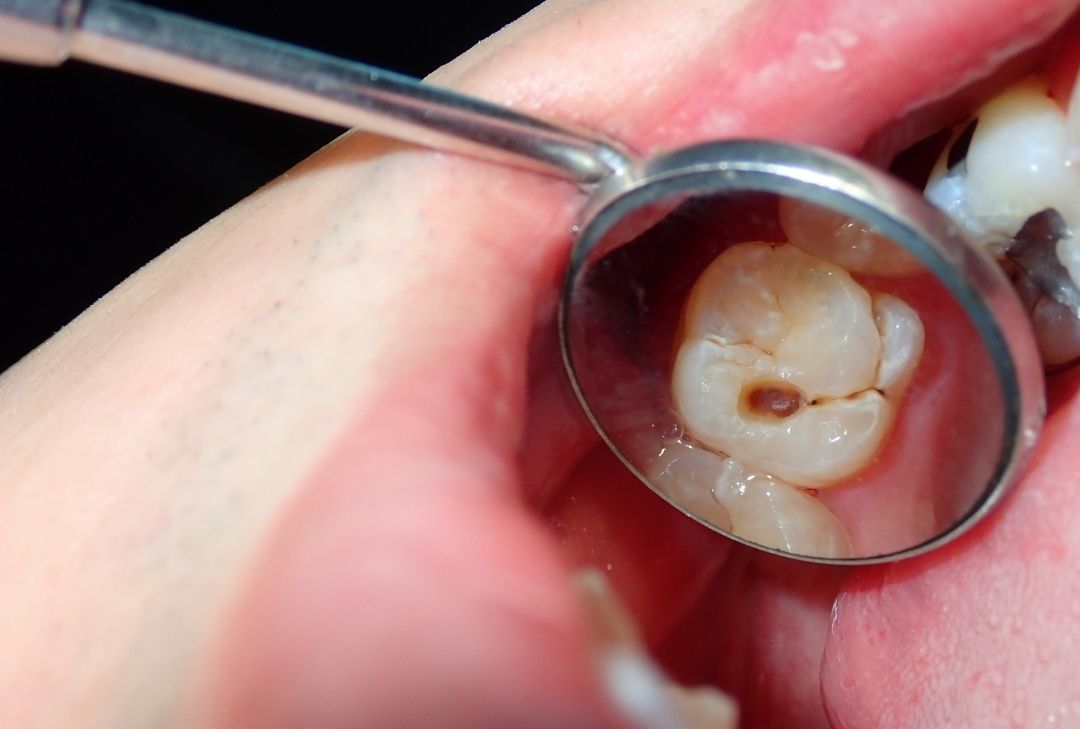
Key facts
- Tooth decay is caused by plaque and may lead to a cavity (hole) in your tooth.
- It can affect people of all ages, even very young children.
- Tooth decay is strongly related to what you eat and drink.
- You can help stop tooth decay by caring for your teeth, eating a healthy diet, and visiting your dental practitioner regularly.
What is tooth decay?
Tooth decay is caused by plaque — a sticky layer of bacteria (germs) that forms on your teeth. The germs come from your saliva.
The bacteria turn the sugar in food and drinks into acid. This can slowly damage your teeth. You can see tooth decay when a cavity (hole) forms in your tooth.
Tooth decay can affect people of all ages, even very young children.
In Australia, 1 in 3 adults over the age of 15 years has untreated tooth decay.
Similarly, by 5 years of age, 1 in 3 children has tooth decay in their baby teeth.
What are the symptoms of tooth decay?
If you have tooth decay, you may have:
- toothache
- tooth sensitivity (for example, to hot or cold food or drinks)
- brown, black or white stains on your tooth surface
- pain on biting
- red and swollen gums near the decayed tooth
What are the stages of tooth decay?
Tooth decay starts with the acid from plaque attacking your tooth enamel. Your tooth enamel is the outer layer of the tooth (Image 1).
Repeated attacks of acid break down the enamel layer (Image 2).
Tooth decay often begin with a white spot in your enamel, usually near your gum line. Left untreated, this can become a cavity.
As the decay gets deeper into your tooth it can cause a toothache or an abscess (Image 4).
In the later stages of decay, your tooth will look yellow-brown or black.

How does my diet affect my teeth?
Sugar is one of the biggest factors leading to tooth decay.
You are more likely to have tooth decay if you:
- have a diet filled with sugary foods
- snack often
- have poor oral hygiene
- have a dry mouth (reduced saliva)
- smoke
When should I see my dentist or dental practitioner?
Early tooth decay has no symptoms, so you should visit your dental practitioner regularly. Your dental practitioner will check your teeth for tooth decay.
Many dental health experts recommend seeing your dental practitioner every 6 months.
How is tooth decay treated?
Early treatment can stop or even cure tooth decay.
Mild tooth decay can be treated by a dental practitioner. They will apply a fluoride paste or varnish. You also need to take preventive steps such as:
- regularly brushing your teeth with a fluoride toothpaste
- improving your diet
This will stop the early decay from progressing into a hole.
You might need a filling to restore your tooth structure.
How can I prevent tooth decay?
To help protect and care for the health of your teeth and gums the Australian Dental Association recommends:
- Brushing your teeth 2 times a day using a fluoride toothpaste.
- Cleaning between your teeth using dental floss or interdental brushes every day.
- Eating a healthy diet that is low in added sugar.
- Having regular dental check-ups.
Fluoride is important to help prevent tooth decay.
Choose a toothpaste which contains fluoride. After brushing:
- spit out any excess toothpaste
- do not rinse your mouth with water
This allows a layer of toothpaste to stay on the surface of your teeth, providing longer protection.
Most Australian tap water has fluoride added to help protect and strengthen teeth.
It’s also a good idea to limit the amount of sweet foods and sugary drinks in your diet. Eat these only occasionally and preferably with meals.
Your dental practitioner may recommend that you have a sealant (special layer) applied to the grooves in healthy teeth. This helps to prevent tooth decay.
How can I prevent tooth decay in my child?
Children’s teeth have softer and thinner enamel, so they decay more easily than adult teeth.
If you have young children, you can care for their teeth by:
- cleaning their teeth 2 times a day
- avoiding sugary drinks, such as fizzy drinks, cordial and fruit juice
- avoiding sweet food
It’s best not to share spoons as you can pass bacteria from your mouth to your child.
Complications of tooth decay
If tooth decay is not treated, it can cause:
- pain
- tooth abscess
- swelling or pus around a tooth
- damage or broken teeth
- chewing problems
If you lose a tooth, your remaining teeth may move into the space left by the tooth.
In children, tooth decay can affect their:
- development
- nutrition
- speech
- jaw development

